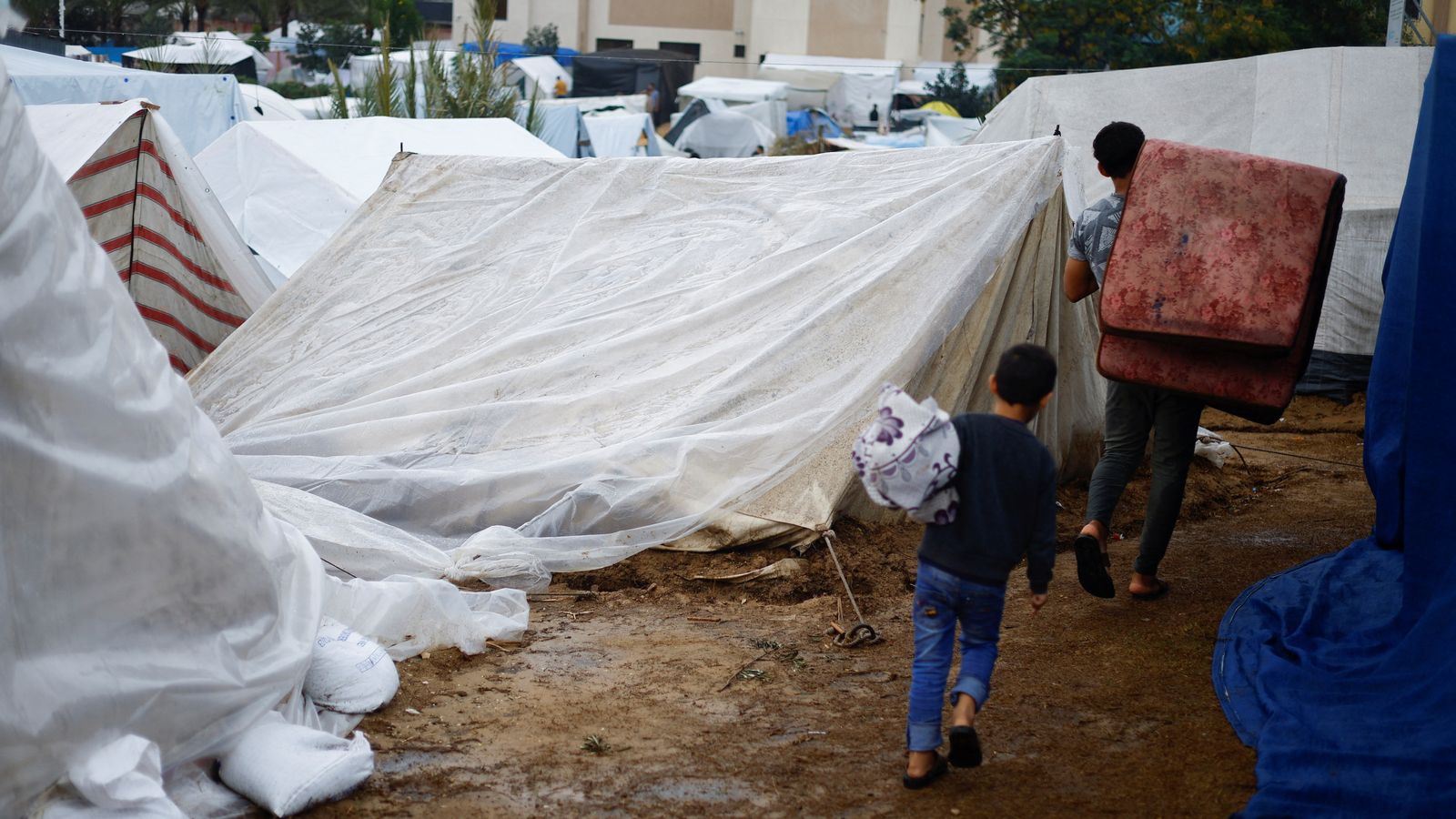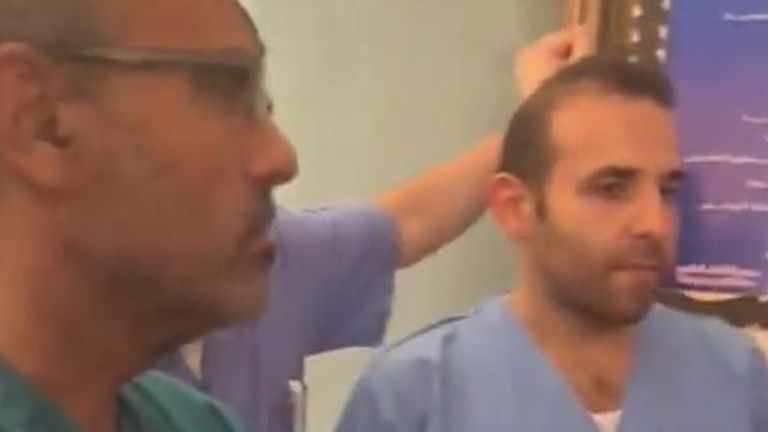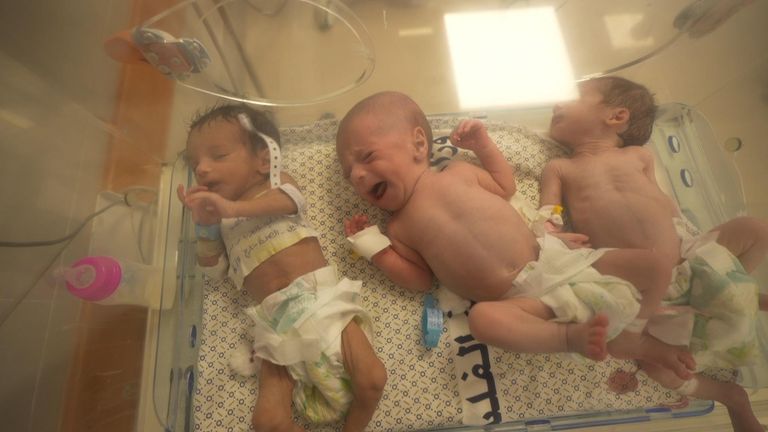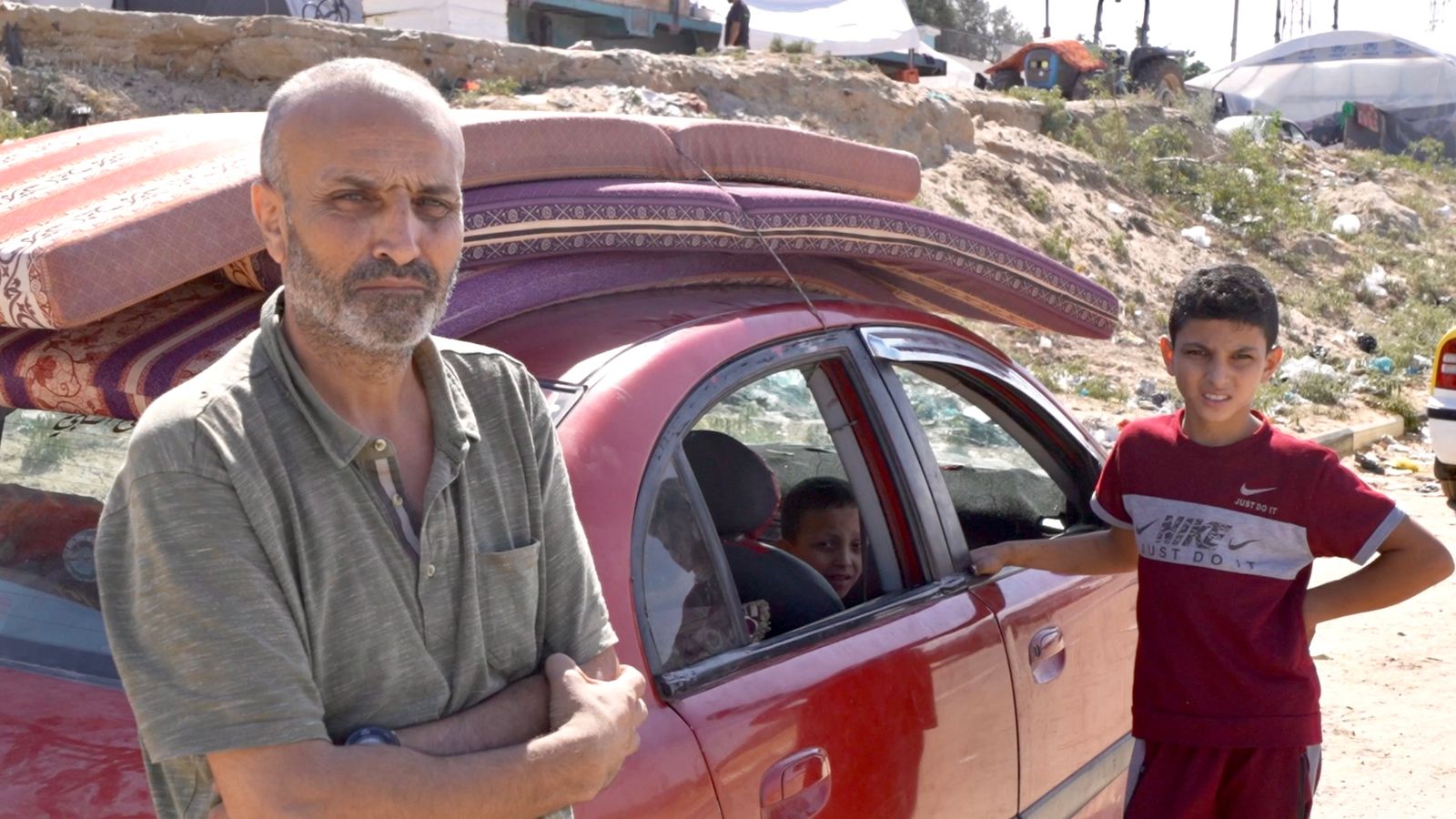Gaza on verge of major disease outbreak, World Health Organisation warns


Gaza is on the “precipice of major disease outbreaks”, the World Health Organisation has said
With 800,000 people crammed into overcrowded schools and other “collective centres”, skin infections including scabies are being found, along with jaundice and diarrhoea, the WHO said.
There is one toilet for several hundred people and “open defecation”, regional emergency director Richard Brennan told Sky News.
Follow latest: 31 babies evacuated from al Shifa are ‘threatened by serious infections’
While the schools were designed to accept displaced people, their populations are six to eight times what they were intended to cater for. Others are living in tents.
Each person has one to three litres of clean water per day, when the accepted minimum in a humanitarian crisis is seven litres, Mr Brennan said.
There are “chest infections, respiratory infections”, while cases of jaundice “give concern for hepatitis”.
He added: “We could be on the precipice of major disease outbreaks. Putting in disease control efforts in these overcrowded, unsanitary contexts is incredibly difficult.”
Please use Chrome browser for a more accessible video player
0:38
Gaza health workers thanked for ‘heroic efforts’
Of the 36 hospitals in Gaza, 22 are out of action, Mr Brennan said, adding that before the conflict began, 3,500 beds were available. Now, it is down to 1,400.
Advertisement
Many families are subsisting on one meal a day. In addition, colder weather is on the way.
“The next few weeks are going to be very tough indeed,” Mr Brennan added.
Referring to the 31 premature babies evacuated from al Shifa hospital and taken to southern Gaza, Mr Brennan said they were likely to travel on to Egypt in the next day or two, depending on their condition.
Please use Chrome browser for a more accessible video player

0:45
Babies evacuated from al-Shifa arrive in Rafah
While Mr Brennan described it as “one of the few good news stories of the war so far”, he added: “We don’t know where any of the parents are, how many of them are orphans.”
Many are very low in weight, they all have serious infections and 11 are classed as in a critical condition.
The WHO is working with authorities to try to trace their parents.

